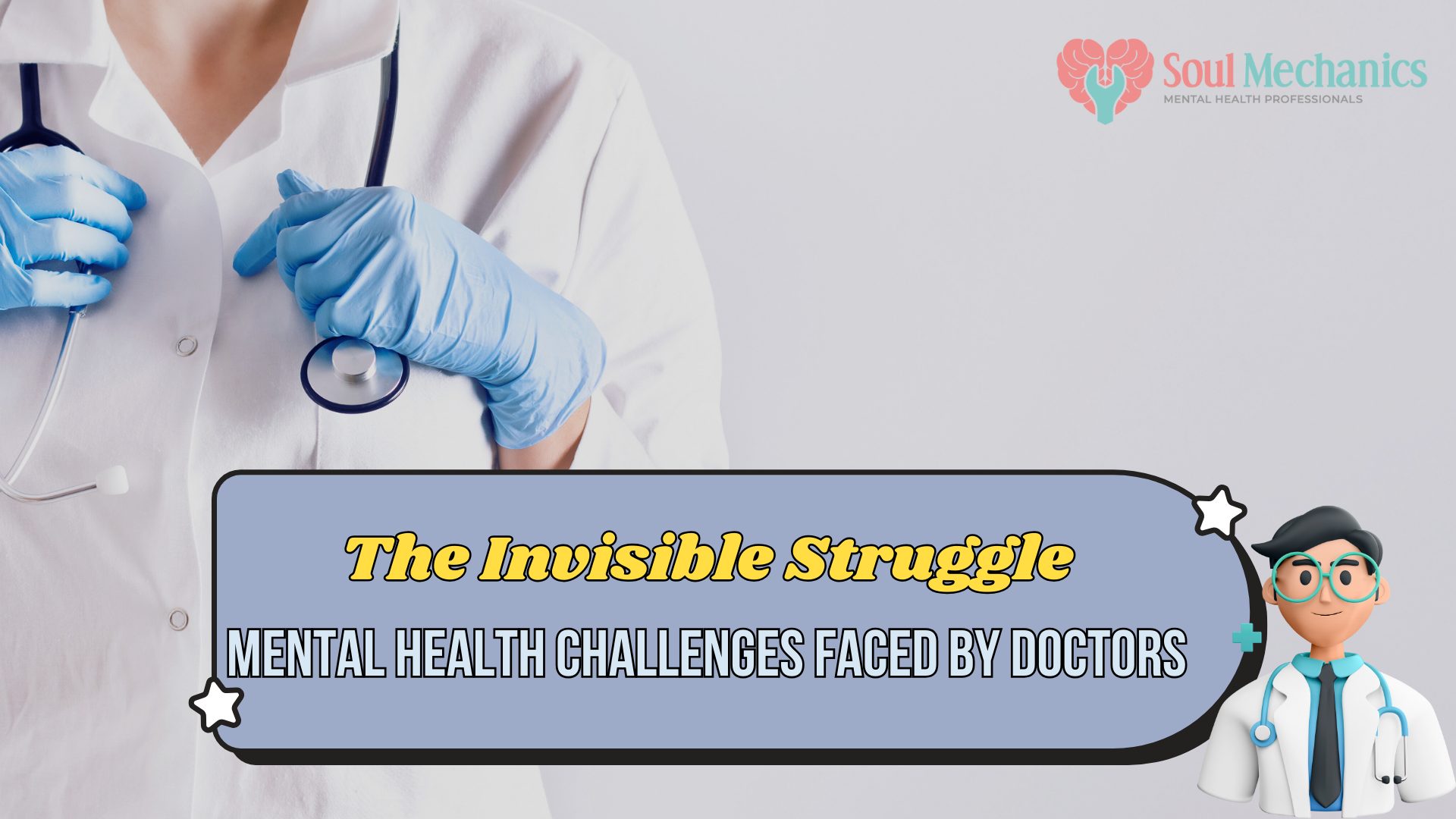Mental Health Challenges Faced by Doctors: The Invisible Struggle
Mental Health Challenges Faced by Doctors: The Invisible Struggle

Written By: Shaundtrya Ganasan, Licensed Counselor (KB11097)

Doctors, recognized globally for their extensive education and training, play a critical role in maintaining the health and well-being of individuals and communities. In Malaysia, it takes an average of 8-9 years to become a fully registered doctor, during which they acquire in-depth knowledge of the human body, diseases, and medical procedures. They work in various settings such as hospitals, clinics, or private practices, often collaborating with other healthcare professionals to ensure comprehensive and effective treatment for their patients.
Reminder: If you or your loved one are struggling with mental health issues, please don't hesitate to reach out to us at Soul Mechanics KD or Soul Mechanics Ipoh.
Remember, seeking help is not a sign of weakness but strength!
The Unique Stressors of Being a Doctor
Despite their crucial role, doctors are not immune to mental health issues. The demanding nature of their work, long hours, and high levels of stress can take a significant toll on their mental well-being.
High-Performance Pressure
Doctors constantly face the pressure to perform at high levels, making difficult decisions under time constraints.
Emotional Burden
Regularly dealing with life-and-death situations adds to the emotional strain.
Work-Life Imbalance
The lack of work-life balance is a significant contributor to mental health problems among doctors.
Stigma in the Medical Field
The stigma surrounding mental health within the medical community often discourages doctors from seeking help or discussing their struggles.
The Impact of Burnout
A study conducted in 2020 found that 70% of doctors in Malaysia reported experiencing symptoms of burnout, including fatigue, depression, anxiety, and stress. These symptoms were particularly prevalent among doctors working in high-pressure specialities like emergency medicine and critical care. The COVID-19 pandemic further exacerbated these challenges, as healthcare professionals faced the additional emotional toll of battling the virus and witnessing patient suffering and loss.

Strategies for Mental Health Support
Addressing mental health issues among doctors requires a multi-faceted approach:
Regular Mental Health Check-ins
Providing safe spaces for doctors to discuss their challenges and seek guidance from peers.
Confidential Counseling Services
Ensuring professional support is readily available when needed.
Wellness Programs
Implementing programs focused on stress management, mindfulness, and self-care to help doctors develop healthy coping mechanisms and reduce burnout.
Promoting Work-Life Balance
Encouraging doctors to prioritize their own mental well-being through workshops, training sessions, and resources.
Adequate Sleep
Highlighting the importance of sleep for cognitive function and emotional resilience, and providing resources and education on self-care practices.
Creating a Supportive Environment

By prioritizing mental health among doctors, healthcare organizations can create a supportive environment that enhances patient safety and quality of care. It's essential to recognize that healthcare professionals are not immune to mental health challenges. By acknowledging and addressing their own mental health needs, doctors can serve as role models for their patients and colleagues, promoting a culture of self-care within the healthcare community.
Conclusion
Taking care of mental health is not a sign of weakness but a necessity for delivering high-quality patient care and maintaining personal well-being. By prioritizing mental health, doctors can continue to be effective and compassionate healthcare providers, ultimately benefiting the entire healthcare system.
If you’re looking for a therapist in Kota Damansara or Ipoh area, you can click here for more information.
If you enjoyed reading this, why not broaden the horizon of knowledge by learning about "ADHD Interventions for Adults"? You can read the blog here.
For more content related to mental health do follow us on our official Instagram.

